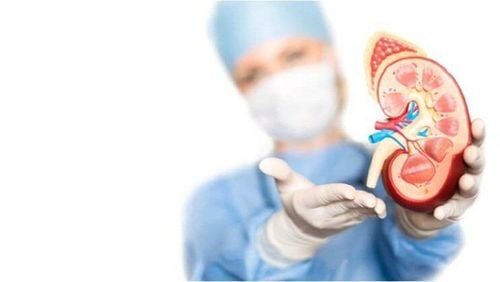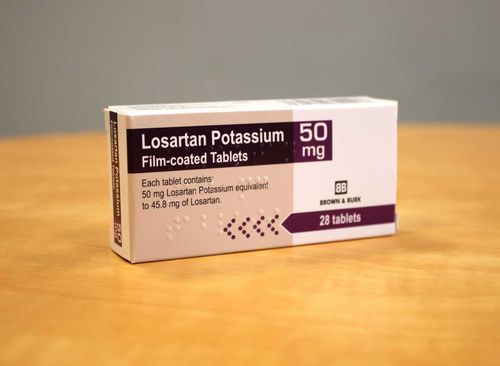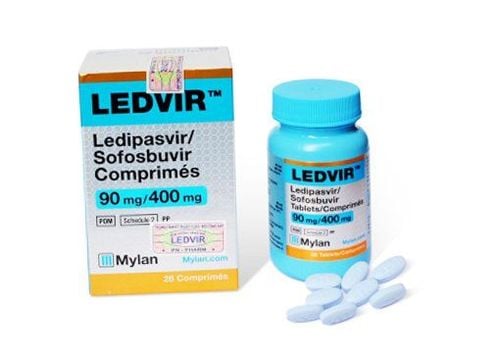This is an automatically translated article.
For people with diabetes, it must be no stranger to tests to monitor their disease. Most people will focus on blood tests, but urine tests can also help us evaluate diabetes. Urine testing can help you and your doctor monitor kidney disease and blood sugar.
1. Does urine test help detect diabetes?
To find out if someone has diabetes, a doctor will need to do blood glucose and urine glucose tests (which are an indicator in the urinalysis test).
There are many causes for glucose to appear in the urine. However, mainly because the amount of glucose in the blood is too high, causing the kidneys to overload, resulting in a certain amount of glucose in the urine. Another cause is that the kidneys are damaged, unable to hold the glucose, so it will escape through the urine.
In fact, if there is a lot of glucose in the urine as well as in the blood, it means that your health is in trouble. This could be a sign of diabetes or prediabetes. You need to pay attention to your health, change your living habits to reduce the amount of glucose in your body.
2. When to test for urine glucose?
In the past, the diagnosis of diabetes was usually based on a urine glucose test, but today people mainly rely on a blood test. However, urinalysis is still used in cases of suspected kidney involvement or urinary tract infection. Because when your kidneys are damaged, there is still glucose in the urine even though the blood glucose level is normal.
In normal people, there will be no glucose in the urine, pregnant women can develop gestational diabetes. If glucose appears in the urine, you need to immediately seek medical advice. Currently, urine glucose test combined with blood glucose test, HbA1C is a way to monitor sugar levels in the body of people with diabetes. From there, the doctor will give advice on adjusting the appropriate lifestyle and activities.
If diabetes is not well controlled, it can lead to a number of dangerous complications such as heart disease, eye damage, kidney damage, foot infections, etc. If you have the warning signs of diabetes You should do blood test, urine test to check. Warning signs may include feeling hungry and tired all the time, urinating more than usual and feeling thirsty all the time, blurred vision, dry mouth, itchy skin.
Cases with high risk of diabetes such as: People with obesity, dyslipidemia, high blood pressure, women giving birth over 4kg, polycystic ovaries, etc. should also have these tests. periodic.
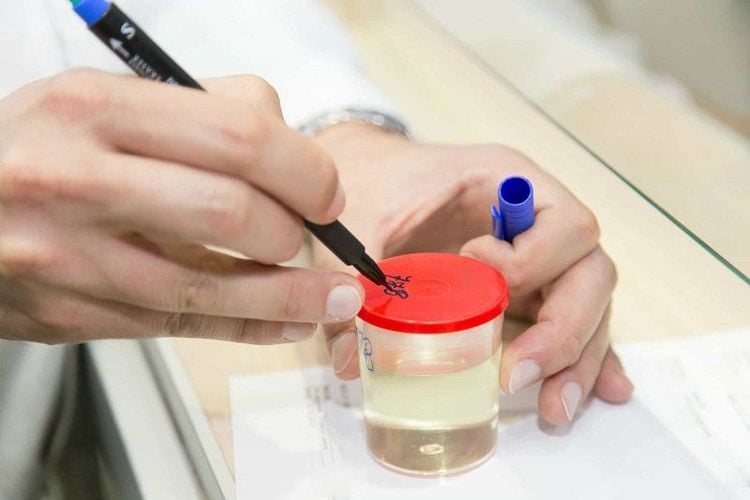
Xét nghiệm nước tiểu giúp bác sĩ chẩn đoán bệnh tiểu đường.
3. What do urine glucose test results show?
A normal test result is when the urine sample is negative for glucose, which means there is no glucose in your urine. An abnormal test result is an increased level of glucose in the urine. Your doctor will rely on your health to diagnose the cause: Kidney disease or diabetes or gestational diabetes (if you are pregnant).
4. Urine test for kidney disease
About a third of people with diabetes have kidney problems. Early and tight control of your blood sugar and blood pressure, plus the help of certain medications, you can keep this organ working properly.
To check for kidney problems, your doctor may do a test that measures the amount of protein in your urine, called microalbuminuria. It occurs when a small amount of albumin (the main protein in your blood) seeps into the urine. Without treatment to slow this leak, your kidneys can be damaged and eventually kidney failure.
You should have this test every year, starting soon after you're diagnosed with type 2 diabetes. That's because high blood sugar often shows up years before you find out you have it. If you have type 1 diabetes, you may not get tested until you've been diagnosed within 5 years.
If the test is positive, your kidneys are leaking protein into the urine. This is a sign that your kidneys are not working as well as they should - even if you feel well and have no symptoms. Your doctor will recommend medications or lifestyle changes to help manage these conditions:
Kidney failure : You may be able to start taking specific medications to prevent further harm. If your microalbumin levels are high, your doctor may recommend another type of test that requires you to collect a sample over 24 hours. This can give a better idea of how damaged the kidneys are and how well they are working. High blood sugar: Studies show that tight control of your blood sugar can reduce kidney damage, so your doctor can recommend more aggressive treatments for you. Blood pressure: Lowering blood pressure reduces the risk of kidney damage from diabetes. Check it every time you go to the doctor. The recommended reading for most people with diabetes is less than 130/80mmHg. Cholesterol: Since an increase in microalbuminuria over time is associated with an increased risk of heart disease, your doctor will work with you to keep your cholesterol and other fats at healthy levels. Other factors that can increase the risk of kidney disease are being overweight or obese and smoking.
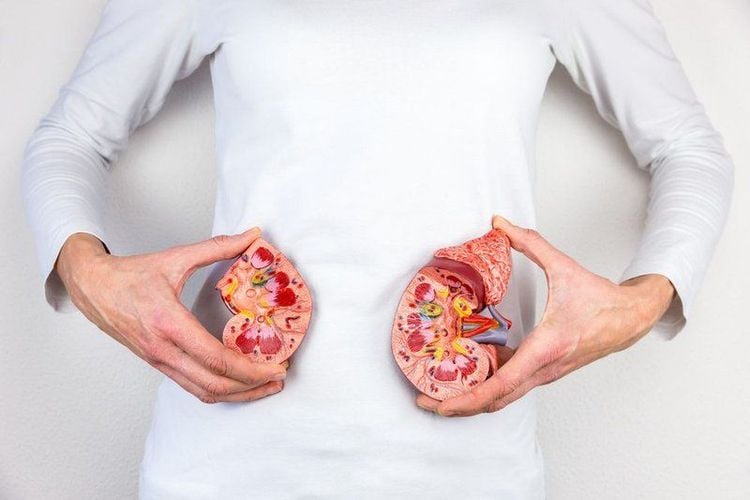
Xét nghiệm nước tiểu giúp chẩn đoán tình trạng sức khỏe của thận.
5. Urine test for ketones
If you have type 1 diabetes, your doctor may ask you to test your urine for ketones. Your body makes them when there isn't enough insulin and turns to storing fat to fuel your cells. Ketones are toxic, and in large amounts can cause a life-threatening emergency called ketoacidosis.
Your doctor can test your ketone levels or you can do it at home with an over-the-counter kit. All you need to do is dip a test strip in your urine. It will change color and you will compare it with a chart to see what the ketone levels are in your urine.
If you have type 1 diabetes, you may need to have your urine tested for ketones if:
You feel sick (cold, flu or other illness) and are nauseated or vomiting. You are pregnant. Your blood sugar is above 300 mg/dL. You have symptoms of high blood sugar including extreme thirst or fatigue, feeling flushed, or your breath having a fruity smell. Doctor requested. If you have type 2 diabetes, it's not likely that you have too much ketones, even if you're taking insulin. However, it can happen during a serious illness. Your doctor may ask you to test your urine when:
You have a cold, flu or other illness, nausea or vomiting with no known cause. Your blood sugar is above 300 mg/dL and continues to rise throughout the day. The urine ketone test should always be negative. If the result is positive, you need to tell your doctor right away. You should also let them know right away if your blood sugar remains high or if you have stomach pain, nausea, vomiting, rapid breathing, strange breath, or if you are urinating a lot.
Your doctor may ask you to:
Drink plenty of water and fluids to reduce your ketones and stay hydrated. Check your blood sugar. If your ketones are high, you may need to be given small amounts of rapid-acting insulin. Go to your local emergency room so you can get fluids and insulin into your veins. Keep detailed records of any urine or ketone tests you have. They can help alert you and your doctor to any problems. Take them with you every time you see the doctor.
No matter what your urine test results are, you need to follow your doctor's instructions. You need to proactively prevent disease by taking measures such as: Building a healthy lifestyle, eating a lot of green vegetables and fiber, eating less starch, limiting fried foods, being physically active, not sitting too much, reducing stress,...
Please follow the website: Vinmec.com regularly to update many other useful information.
Please dial HOTLINE for more information or register for an appointment HERE. Download MyVinmec app to make appointments faster and to manage your bookings easily.
Reference sources: webmd.com, medlatec.vn





